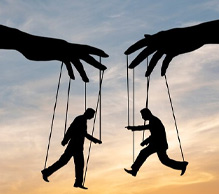What is Claustrophobia?
What triggers claustrophobic reactions?
There are several potential causes that can lead to the development of claustrophobic anxiety:
1. Traumatic experiences where one is trapped against their will, like being locked in a confined space as punishment during childhood. This can establish deep-seated associations between confined areas and danger.
2. Biochemical factors like genetics, brain structure abnormalities, and chemical imbalances in neurotransmitters like serotonin influence anxiety regulation in the brain.
3. Cognitive distortions that lead to catastrophic misinterpretations of risk in confined spaces. There is a disconnect between reality and perceived danger.
Common signs and symptoms
When faced with situations like small rooms, crowds, planes, or tunnels, people with claustrophobia exhibit both psychological and physiological symptoms, including:


1 . Extreme anxiety, panic, and a desperate need to flee the space immediately
2. Shortness of breath, dizziness, choking sensations and feeling unable to breathe
3. Heart palpitations, chest tightness, shaking, and sweating
4. Nausea and abdominal discomfort
5. Loss of self-control with urges to scream, cry, or claw to escape
6. Fear of imminently dying from suffocation


Types of claustrophobic fears
There are three main types of claustrophobic reactions:

Fear of Restriction
Scared of tight physical spaces with no easy escape route like tunnels

Fear of Suffocation
Scared of running out of air or inhaling toxic gases like being trapped in an airtight room

Fear of Entrapment
Scared of being stuck indefinitely with no way out, like a stopped elevator
Treatment options for managing claustrophobia
Claustrophobia is treatable through techniques like:
Cognitive-behavioural therapy to modify thought patterns around confined spaces
Exposure therapy to gradually acclimate patients to smaller spaces in a controlled setting
Anti-anxiety medications like SSRIs to reduce panic symptoms
Breathing exercises and mindfulness techniques to calm the body’s stress response
Support groups to share insights on effective coping strategies
While claustrophobia can severely impact your everyday life, confronting fears progressively under professional guidance can help patients take control and function normally.
